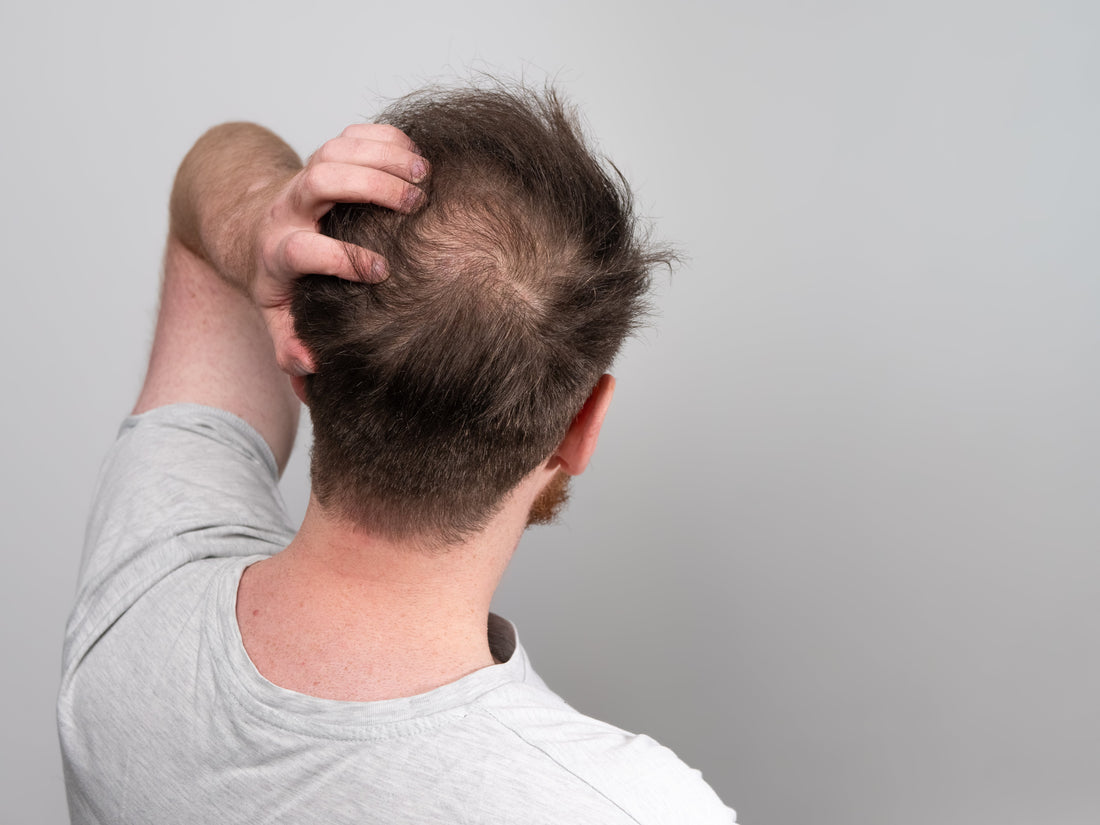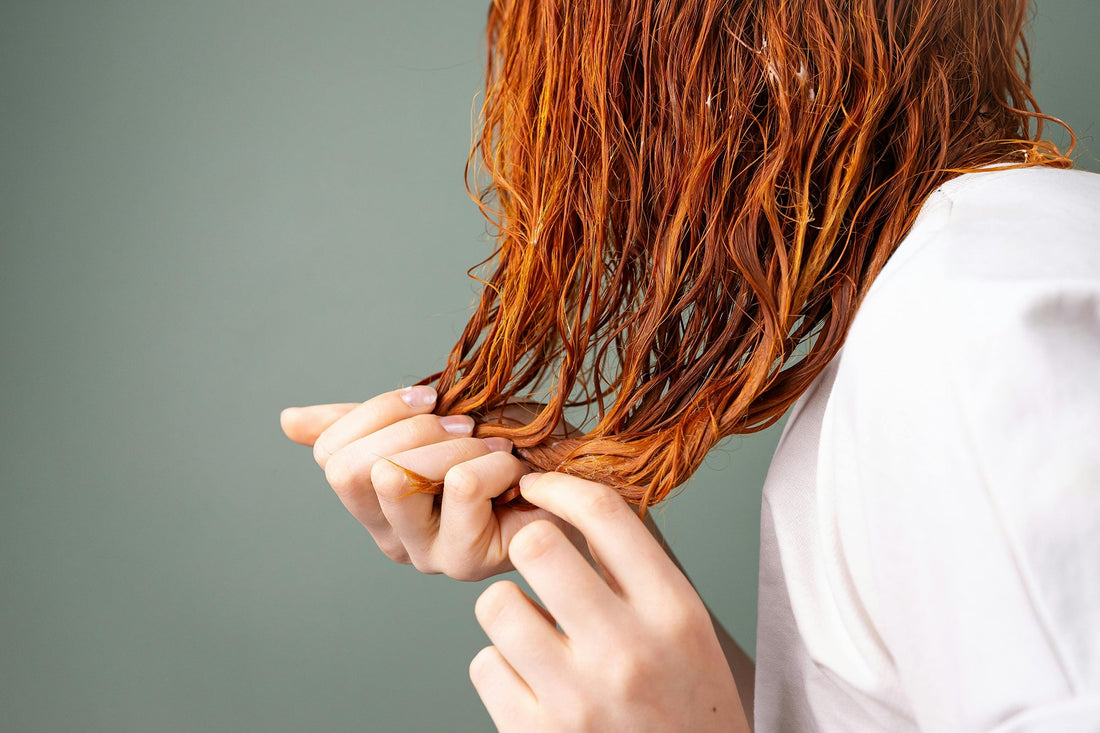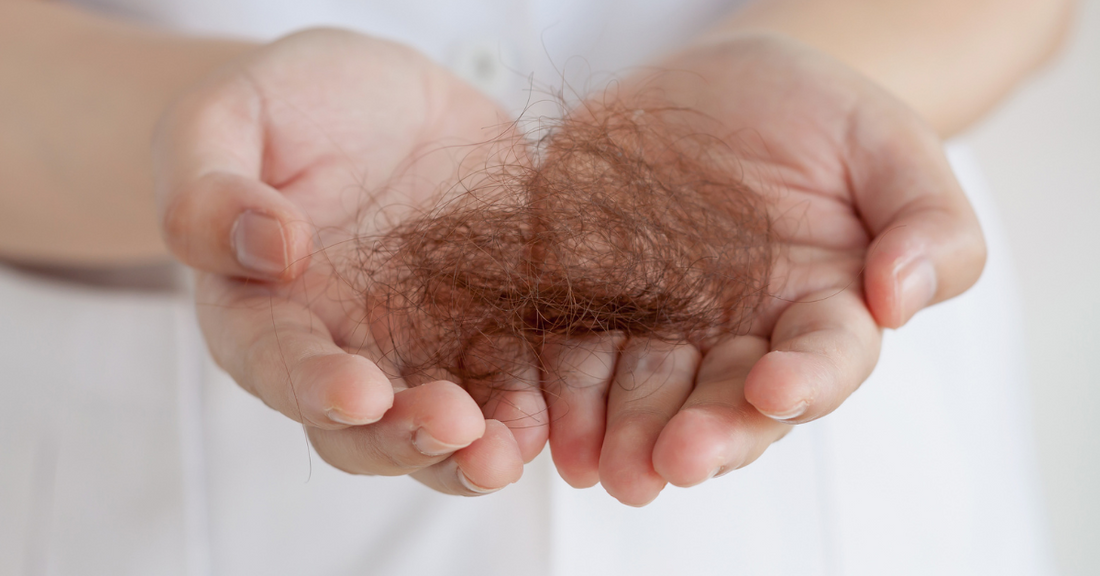The keto diet, short for ketogenic diet, has been regarded as one of the most successful weight loss strategies nowadays. However, it is not a perfect solution or an easy way to control your weight. Following the keto diet requires staying away from carbohydrates in a radical way and changing your eating habits to find suitable replacements for everyday foods.
When you’re trying this diet for the first time, you might be struck by a few problems and side effects. It’s very different from the standard menu, your body might react with flu-like symptoms for a week or two (known as the "keto flu"), and you might even experience hair loss as a side effect. But why is that?
In this article, we will focus on a side effect many men and women experience when trying the keto diet.
Is hair loss common when you’re cutting carbs from your diet?
Is it severe?
What can you do about it?
Is Hair Loss A Side Effect Of The Keto Diet?
The human body has a wide range of responses to the same stimulus, and that’s why medicine should be individualized to meet each patient’s needs. Similarly, after taking medications or a starting new diet, you can experience side effects that are unique to you. It all depends on how your body functions, your medical history, current health issues, and much more.
The keto diet has potential side effects, such as the keto flu and hair loss, but the impact of this diet is highly variable depending on your body and how it reacts to what can be a fairly dramatic dietary change.
Hair loss is one potential side effect, and women are more prone to this problem then men when on this diet.
Remember that your hair is composed of dead cells fixed into a matrix made up of keratin, a fibrous protein that gives elastic properties to the hair strands. The whole structure is created at the base, in the hair follicle, more specifically in the hair papilla, where new epithelial cells replicate and get nutrients from the circulating blood vessels. As you will see next, each step of this process and the basic structure of your hair may be subject to change when you’re following a keto diet.
5 top reasons why it happens
There are many theories and explanations as to why the keto diet can cause hair loss. Here are the 5 top reasons:
- Nutrient deficit: The keto diet features a different eating pattern, and you might get vitamin or mineral deficiencies if you’re not balancing nutrients properly. Vitamins such as biotin and minerals such as zinc are essential to keep your hair growing.
- Rapid weight loss: Studies show that very-low-calorie diets and rapid weight loss may cause hair loss. The body has less energy, and since hair is not a vital process, it does not have a priority. In these cases, nutrients and energy are distributed in key organs such as the heart and brain, and the hair follicles slow down their processes.
- Low protein levels: As mentioned above, keratin is an important protein for hair integrity. The keto diet is a low-carb diet, but not consuming an adequate proportion of protein can impair keratin synthesis and cause hair loss. Along with calorie deficit, it is one of the most common causes of hair loss in beginners, especially if you do not measure your macronutrients accurately.
- Physical or emotional stress: Outside keto dieters, stress is one of the most common causes of hair loss. In keto diet, your body is going through significant changes, and you may also be experiencing some stress and anxiety. Not finding the ingredients you need or adapting to a new method of preparation might become an additional source of stress that may contribute to hair loss.
- Gut microbiome changes: Changing your diet comes with changes in your gut microbiota. Some of these healthy bacteria contribute to hair by synthesizing biotin and other substances that pass to the bloodstream. A violent change in this gut microbiome balance may also contribute to temporary hair loss.
Tips and recommendations
What can you do if you experience hair loss on a keto diet?
Here’s a list of ideas and suggestions:
- Consume enough proteins: Ideally, your fat intake should not exceed 60%, and your proteins should be around 35% of the calorie intake in the keto diet. Be sure to eat enough high-protein foods, such as lean meat, fish, eggs, and dairy. By obtaining enough amino acids from your meals, your body will be able to create keratin and other proteins for hair.
- Use probiotics: To maintain the balance in your gut microbiota, it might be a good idea to use probiotics, and it won’t hurt your ketosis. They are living organisms that will populate your gut with healthy bacteria and reduce the chance of infection. Recommended probiotic strains to keep your hair growing include Lactobacillus reuteri and Lactobacillus casei.
- Supplement your diet with multivitamins: If you’re not sure about your nutrient balance, supplementing with multivitamins can be a good choice. Even in the keto diet, it is possible to obtain all the nutrients you need from the right food choices. But until you figure it out and adapt to your new dietary habits, a dietary supplement can slow down hair loss.
- Use Hair Restore products: Using topical products that have the ability to to improve your hair’s quality and health. All of Hair Restoration Laboratories' products include Halting Technology®, including our Professional Strength Hair Restore Shampoo, Hair Restore Shampoo, Hair Restore Conditioner, Ultra Strength Hair Treatment and Maximum Hair Thickening Serum. Our Halting Technology® contains ingredients that have been clinically-proven to safely block the harmful effects to help prevent hair loss and promote stronger, thicker and healthier hair.
- Ask your doctor: If you are taking the measures above and still experience hair loss, talk to your doctor and follow his/her advice. The human body has small details that only a professional will be able to grasp, and sometimes, home remedies are not enough.
Promoting good health and looking your best can both be accomplished with a keto diet. While hair loss can occur on this diet, it is rare. If it occurs, however, employing the suggestions set forth above should help halt and reverse the problem.







